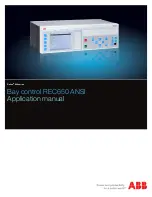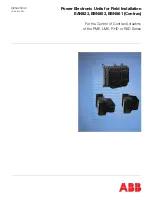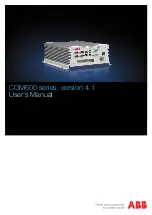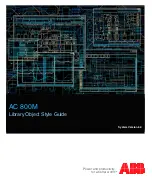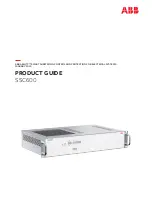
2
INSTALLATION, OPERATION and
MAINTENANCE
Figure 942SS Combination Air Valves
INTRODUCTION
This manual will provide the information to
properly install, operate and maintain the valve
to ensure a long service life. The GA Industries
Figure 942SS Combination Air Valve is ruggedly
constructed to provide years of trouble-free
operation with minimal maintenance.
CAUTION
The valve is NOT recommended for use with
toxic fluids, fuels or fluids containing hazardous
gases
CAUTION
The valve will not function if used at a pressure
higher than the maximum working pressure
indicated on the nameplate.
The Shop Order (SO) Number, Figure Number,
size and pressure rating are stamped on a
nameplate attached to the valve. Please refer to
the SO number when ordering parts.
DESCRIPTION OF OPERATION
The Figure 942SS Durovent
™ Combination Air
Valve is designed to vent air through its large
orifice as the system is being filled with liquid
and close tight when the system is full and
pressurized. The valve automatically opens to
admit air through the large orifice during draining
or when the internal pressure falls below
atmospheric. The valve also releases air and
sewage gas that has accumulated within the
valve while the system is pressurized and
operational.
These valves are usually installed at high points
in the system where air tends to collect and
vacuum conditions initially form during draining.
When empty of liquid, both the large and small
orifices are open allowing air to be vented ahead
of incoming liquid. The float rises when water
enters the valve and closes the orifices. As air
and sewage gas accumulate in the valve it
forces the water level down until the float drops
and opens the small air release orifice while the
large orifice remains closed. As air is released
the water level rises lifting the float and re-
closing the small orifice. This sequence occurs
as often as necessary to release air and gas that
has collected in the valve.
Should the pressure inside the valve fall below
atmospheric both the large and small orifices
open to allow air to be drawn into the system to
alleviate vacuum conditions.
RECEIVING AND STORAGE
Inspect the valve upon receipt for damage
during shipment. Carefully unload all valves to
the ground without dropping.
The valves should remain in a clean, dry and
weather protected area until installed. For long
term storage (greater than 6 months) the rubber
surfaces of the seat should be coated with a
non-toxic lubricant such as "SuperLube" made
by Synco Chemical. Do not expose the rubber
parts to sunlight or ozone.
INSTALLATION
The Figure 942SS is standard with NPT
screwed pipeline connections up to 3
” pipeline
connection size.
Consult the drawings of record to verify the
configuration supplied and installed.
The valve must be installed in an upright vertical
orientation, normally at a high point in the
system.
If installed outdoors, below ground in a vault or
in an unheated area, adequate freeze protection
must be provided.
An isolating valve should be installed between
the valve and the pipeline or system to facilitate
maintenance
(included
with
backflushing
attachments).
Carefully screw threaded end valves onto pipe
nipple using compatible thread sealant. Tighten






